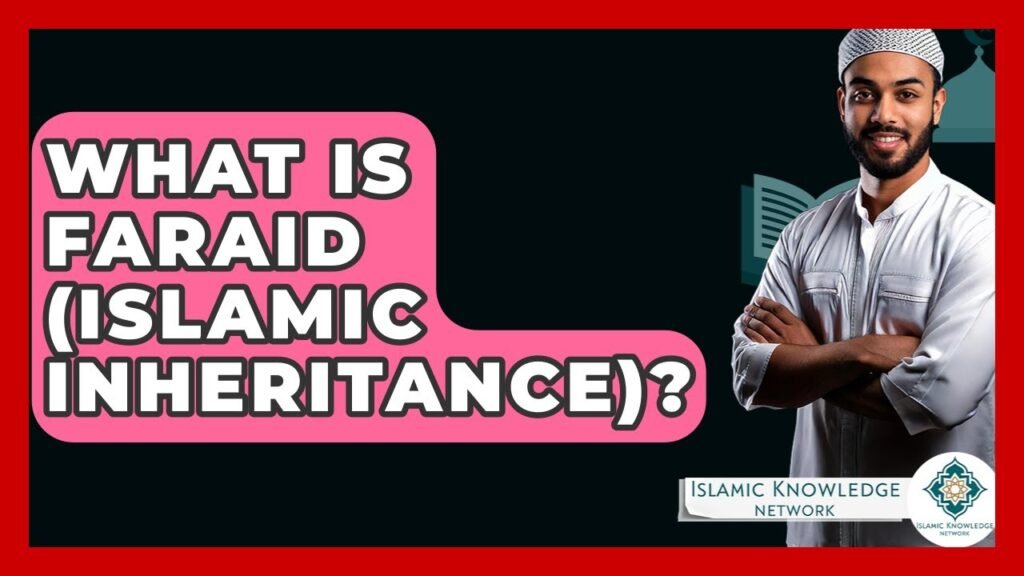Disclaimer:
The content published on this website is provided for general informational purposes only. Articles are generated with the assistance of artificial intelligence and are reviewed periodically; however, accuracy cannot be guaranteed in all cases. Readers are encouraged to verify important information from reliable and authoritative sources before relying on it. The website does not intend to mislead, and any errors found will be corrected when identified.
What Is Faraid (Islamic Inheritance)?
Faraid, or Islamic inheritance, is a fundamental aspect of Islamic law that governs the distribution of a deceased person’s estate among heirs. Rooted in the principles outlined in the Quran and Hadith, Faraid ensures a fair and just allocation of wealth, preserving family ties and communal harmony. Understanding Faraid is vital for Muslims, as it not only helps in maintaining family relationships but also fulfills one of the key obligations in Islam—properly administering financial affairs in accordance with divine guidance.
At Airlink Hajj and Umrah, we recognize the significance of Faraid within the broader context of Islamic teachings. Our commitment goes beyond just providing pilgrimage information; we aim to equip our readers with comprehensive knowledge that enriches their spiritual journey. As you prepare for the Hajj or Umrah, we also encourage you to delve into topics like Faraid, which may impact your wealth distribution and familial responsibilities. We frequently update our blog with relevant insights and resources on Hajj and Umrah, ensuring that you remain informed and empowered in all aspects of your Islamic obligations. Join us as we explore the essential principles of Faraid and enhance your understanding of this vital subject.
What Is Faraid in Islamic Inheritance? Key Insights Explained
Faraid, or the Islamic laws of inheritance, plays a significant role in determining how a deceased person’s estate is distributed among heirs. Rooted in the Quran and Hadith, these laws are designed to ensure justice and fairness within families, providing clear guidelines on who inherits and how much. Each category of heirs, including children, spouses, and parents, is entitled to specific shares.
The division of assets in Faraid is not arbitrary. Instead, it operates on established principles — for example, male heirs often receive twice the share of female heirs in certain situations, a rule reflecting historical context rather than contemporary gender norms. Understanding Faraid is crucial for Muslims, especially when preparing a will or managing estate matters, as it ensures compliance with Islamic teachings.
At Airlink Hajj and Umrah, we understand the importance of adhering to Faraid while planning your estate. Alongside our rich content on Hajj and Umrah, we provide updates and insights into Islamic principles. Being informed about Faraid helps ensure that your economic legacy honors both your faith and your loved ones. Explore our blog for comprehensive guides that bridge spiritual obligations with practical advice.
FAQ on What Is Faraid in Islamic Inheritance? Key Insights Explained.
-
What is Faraid in Islamic inheritance?
Faraid refers to the prescribed shares of inheritance allocated to heirs under Islamic law, ensuring a fair distribution of a deceased’s estate among family members. -
Who are the primary heirs in Faraid?
Primary heirs typically include the deceased’s direct family members, such as spouses, children, parents, and siblings. Each category has specific entitlements. -
How is the distribution determined in Faraid?
Distribution is based on various factors, including the relationship to the deceased and the number of heirs. The Quran and Hadith provide guidelines for calculating shares.
-
Can Faraid shares be altered by a will?
While a testator can allocate a portion of their estate through a will, Faraid shares cannot be altered. However, the remaining one-third of the estate may be directed as per the testator’s wishes. - What happens if a beneficiary predeceases the deceased?
If an heir passes away before the deceased, their share typically gets redistributed among the remaining heirs, unless specified otherwise in a will or under local laws.
Mushu, an experienced Saudi Arabia traveler and writer, shares insightful tips and spiritual reflections to enhance Hajj and Umrah journeys for fellow pilgrims. He has been to Makkah and Madina from 2016 to 2023 many times and his posts will reflect this.







